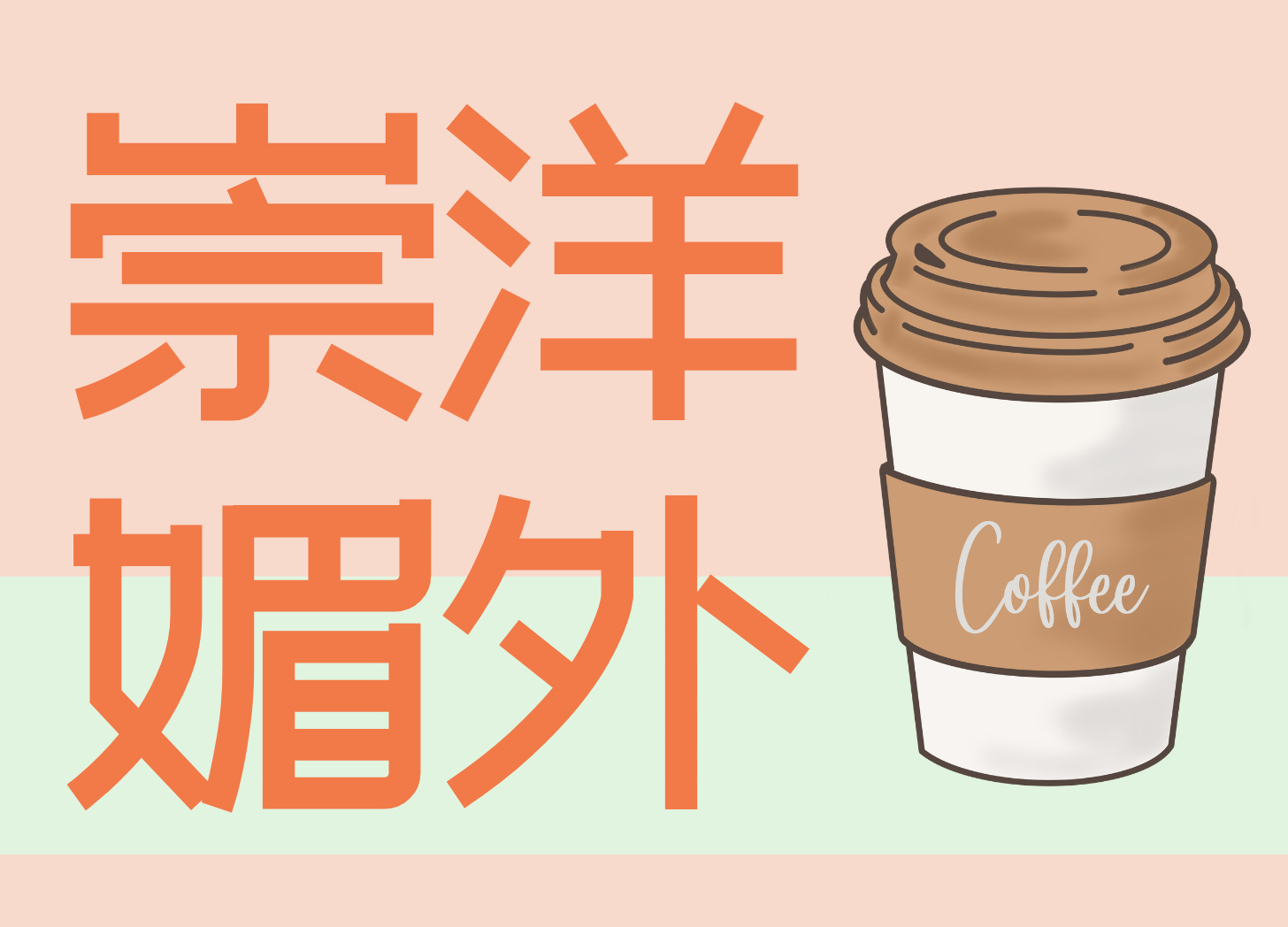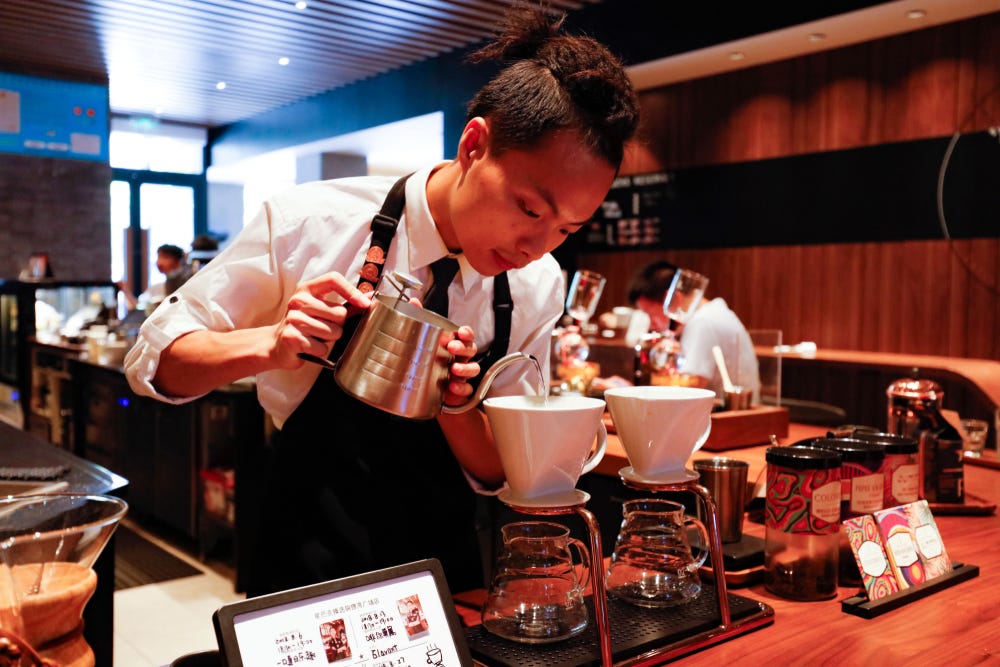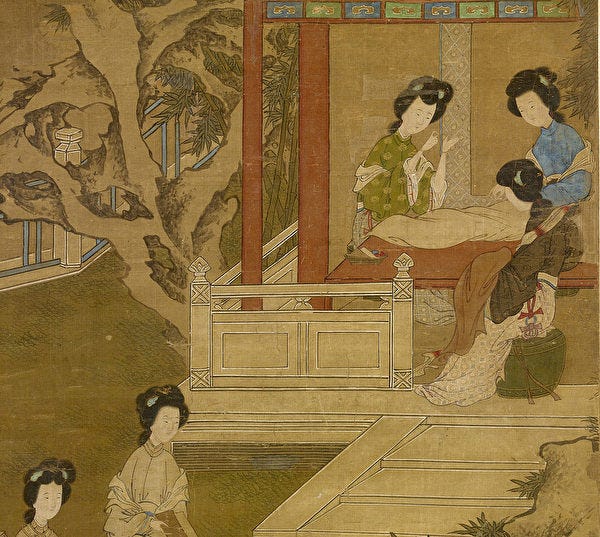Do Chinese People Prefer Tea Over Coffee?
Are you 咖啡党 ☕ or 茶派 🍵?
Idiom of the week: 崇洋媚外 (chóng yáng mèi wài)
意思是崇拜西方,谄媚外国人: it means to have a servile attitude to foreign things (worshipping the West and fawning on foreigners).
谄媚 (Chǎnmèi) - to flatter, fawn on
Good morning!
Did you have your coffee yet? Or maybe you are a tea drinker? Did you know that China is becoming a coffee-drinking nation? How do you think, is it just a preference, or maybe it’s a “崇洋媚外” attitude?
China is becoming a coffee-drinking nation. Photo: alizila
Lets look at how coffee became a fashionable thing for young Chinese people:
茶是我们中国传统文化,作为年轻人我认为我们应该将中国的茶文化继续发扬光大,再者,茶要比咖啡更加健康,但为什么现在的年轻人都选择喝咖啡而不是茶呢,这是因为崇洋媚外吗?
发扬光大 (Fāyángguāngdà) - to carry forward, to flourish
中国的茶文化继续发扬光大 - China's tea culture continues to flourish
再者 (Zài zhě) - furthermore
崇洋媚外 (Chóngyáng mèiwài) - to adore foreign things
在西方,咖啡所向披靡,而在东亚,茶的地位则难以撼动。茶和咖啡以及可可作为世界三大饮品,茶和咖啡都能提供咖啡因,不同的是,茶叶中除了咖啡因之外,还有少量的茶碱。
披靡 (Pīmí) - invincible
在西方,咖啡所向披靡,而在东亚,茶的地位则难以撼动。In the West, coffee is invincible, while in East Asia, tea's position is unshakable.
东亚 (Dōngyà) - East Asia
则 (Zé) - but, then
撼动 (Hàndòng) - to shake
咖啡因 (Kāfēi yīn) - caffeine
和茶叶相比,咖啡能够更廉价,更快速的补充咖啡因,因此得到了年轻人们越来越多的喜爱。调查数据显示,中国主要是30岁以下的年轻人群推动了消费,2021年中国78%的咖啡消费者年龄在18至44岁之间。
廉价 (Liánjià) - cheap, low cost; 廉价航空公司 (Liánjià hángkōng gōngsī) - low cost airline
补充 (Bǔchōng) - to replenish
消费 (Xiāofèi) - consumption, to consume
茶作为饮品,早就融入了中国人的文化和血液,“柴米油盐酱醋茶”。往大了说,茶是文化,而咖啡只是饮品。茶需要细细品,而咖啡在中国只是快餐。
融入 (Róngrù) - to assimilate into
血液 (Xiěyè) - blood; 血液循环 (Xiěyè xúnhuán) - blood circulation; 血液科 (Xiěyè kē) - hematology
“柴米油盐酱醋茶” (Cháimǐyóuyán jiàng cù chá) - “Rice, oil, salt, sauce, vinegar and tea”; a Chinese expression describing the staple products needed in a household
往大了说 (Wǎng dàle shuō) - to put in a bigger picture
细细品 (Xì xì pǐn) - to taste carefully
尽管咖啡能够让人兴奋,但咖啡消费并不能直接提升生产力,或是富裕水平。这种相关性其实是反向的:优渥舒适的生活,通常能够带来更多的时间和金钱,来享受人生乐趣和非必需消费品,其中就包括咖啡。
产力 (Chǎn lì) - productivity
富裕 (Fùyù) - rich, wealthy
优渥 (Yōuwò) - generous; synonym: 大方 (Dàfāng)
舒适 (Shūshì) - comfort; cozy
优渥舒适的生活 - a comfortable life
乐趣 (Lèqù) - pleasure
Are you a fan of poetry?
A painting by Tang Yin. Photo: epochtimes.com
Let’s look at a famous poem from which the expression “柴米油盐酱醋茶” was taken from:
琴棋书画诗酒花 Qín qí shū huà shī jiǔ huā
当年样样不离它 Dāngnián yàng yàng bùlí tā
如今七样皆更改 Rújīn qī yàng jiē gēnggǎi
柴米油盐酱醋茶 Chái mǐ yóu yán jiàng cù chá
— 唐寅
Tang Yin (唐寅) (1470-1524) known also as Bohu (伯虎) was a Chinese painter, calligrapher and poet. In the poem, he expressed his disappointment of his contemporaries’ disregard of art:
What does Tang Yin say?
书画琴棋诗酒花”本为大雅之事,当年乐在其中,何其风流潇洒,而今好景不再,一切都宣告“颠覆”,变为“柴米油盐酱醋茶”的大俗之物了。
"Calligraphy, painting, music, chess, poetry, wine and flowers" were originally great elegant things. In the past, people enjoyed them and were so elegant and free. But now the good times are gone. Everything has been "overturned" into the vulgar things of "firewood, rice, oil, salt, sauce, vinegar and tea".
大雅之事 (Dà yǎzhī shì) - big elegant things, as opposed to 大俗之物 (Dà sú zhī wù) - big vulgar things
风流潇洒 (Fēngliú xiāosǎ) - elegant and free, romantic and chic
颠覆 (Diānfù) - to subvert, to overturn
Apparently tea was not yet been such a refined commodity in his times!
Have a lovely cup of coffee or tea, however you prefer!
Antoine & Dorota






